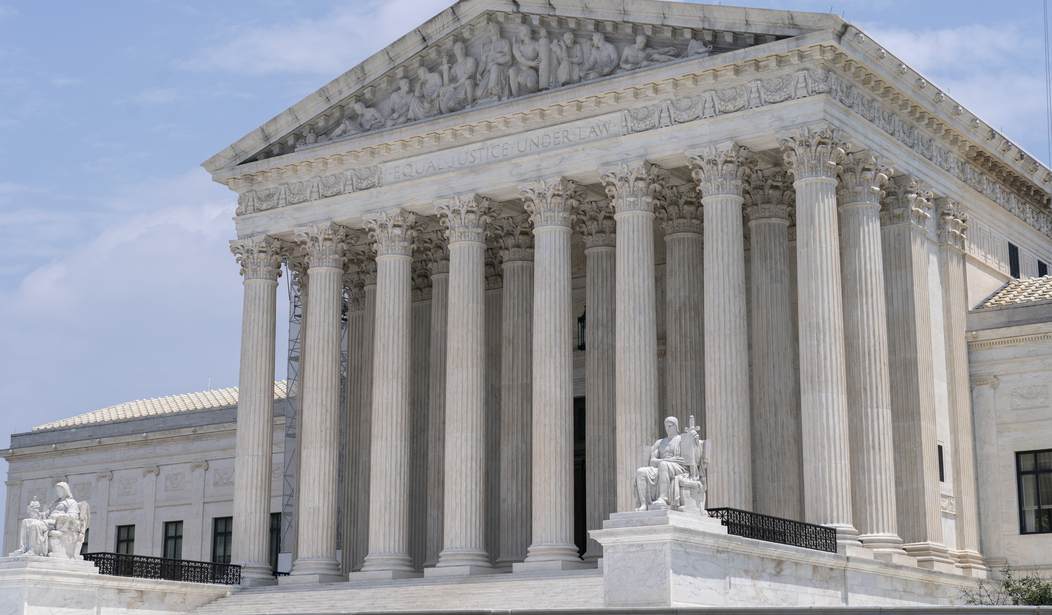When the Supreme Court handed down the Bruen decision, it shattered a lot of people’s hopes and dreams. I mean, yeah, everyone kind of knew what was coming to some degree or another, but the decision still changed the judicial landscape on Second Amendment cases going forward.
A year later, a lot of people are still crying about it.
That doesn’t surprise me, and I would probably still be griping if I were in their shoes as well. I don’t begrudge them that because I really don’t want to be a hypocrite.
Yet if you’re going to argue against something like Bruen, you should do a better job than this guy.
Last year, the U.S. Supreme Court’s decision in New York State Rifle & Pistol Association, Inc. v. Bruen rejected New York’s century-old approach to gun regulation and announced a new test for Second Amendment rights. That test was constructed entirely out of a set of primary school—or maybe law school—beliefs about the simplicity and objectivity of historical analysis. It has now placed a straitjacket of historicism on regulations seeking to address the epidemic of gun violence in society today.
Coming at a time when stare decisis on the high court seemed to have taken a vacation. Bruen administered legal steroids to a right that the Court had only recently invented. Sadly, there is just no other way to say it: The Bruen opinion was moronic. Somehow the Court’s majority figured that judges could put themselves in the shoes of the framers and figure out that those 18th-century gentlemen had already looked at the “societal problem” of gun violence as it manifests today and decided that the best policy was unrestricted possession of arms for self-defense.
Actually, there are other ways to see it, particularly since the author is starting from the bizarre and revisionist principle that the Second Amendment is really about keeping the government from banning the government from having guns.
In fact, there is a long line of legal documents showing lawmakers and jurists alike looked at the right to keep and bear arms as an individual right, not a supposedly collective one. So this idea that the right was “recently invented” lays the groundwork with a faulty premise, then goes from there.
Further, it should be remembered that Bruen says nothing about “unrestricted possession of arms for self-defense.”
In fact, it actually created a test to determine just which restrictions would pass constitutional muster and which wouldn’t. That sounds like the Court actually did believe there was some room for restriction and that they believed the Founding Fathers thought so as well.
It’s just not as extensive as this writer would prefer.
With the “method” articulated in Bruen, the Court felt free to decide that it was okay to “update” the Second Amendment to cover modern mass-produced, multi-shot, and automatic handguns but not to update gun policies. Although the framers surely could not have anticipated the nature and extent of gun violence today, maybe the Framers did not anticipate change to the “societal problem” of gun violence, or (the Court intuits) would not have changed their policy choice, but either way New York’s solution was out of bounds.
Except no one is claiming that they did.
The Founding Fathers rightly worried about the government taking more and more power until it became tyrannical, so they wanted to make sure the people had the means to resist such tyranny.
Societal problems like so-called gun violence were irrelevant to their reasoning because, frankly, tyranny is a much bigger problem should it come to pass.
Further, this entire argument is predicated on the idea that gun control doesn’t just solve gun violence, but it’s the only possible solution. Both of these are false.
History ostensibly mattered to the Court—but not all history. The Court treated the Second Amendment as a fixed statement of American gun policy, frozen in history at the time of the nation’s founding. But it clearly did not treat what counts as a gun to be fixed in an era when muskets prevailed. The Court was willing to evolve in its interpretation of what “arms” are, but not its interpretation of how the Second Amendment should apply to the vastly changed weapons available today. This sense of gun policy as constitutionally fixed creates a strange and jarring contrast between Bruen and Dobbs v. Jackson Women’s Health Organization. On abortion, the Court said that states should be free to decide important matters of reproductive rights. But not when it comes to gun rights.
I find it funny that the author of this seriously thinks this is a valid argument…when he’s writing this on a computer and publishing it on the internet.
Honestly, this is downright hilarious to me because the hypocrisy is astounding.
Our rights don’t disappear because technology and progress march onward. Just as the First Amendment has been interpreted to apply equally to modern technology and not just the printing press and the Fourth Amendment protects us from searches of our electronic devices as well as our homes, the Second Amendment includes more modern firearms.
When we really get down to it, though, this long, drawn-out piece is little more than an argument from emotion. In the author’s mind, Bruen is wrong because he simply doesn’t like it. From a fault premise to pushing a narrative that has absolutely no relation to reality, his argument really boils down to petulance from a spoiled child more than a detailed attack on Bruen’s reasoning.
That’s probably because, contrary to claims by people like our intrepid writer here, there is no logical reasoning that can undermine Bruen. It was rightly decided and laid the groundwork for an important test going forward to determine the constitutionality of gun control laws.
And stomping your feet because you didn’t get your way is no argument.








Join the conversation as a VIP Member